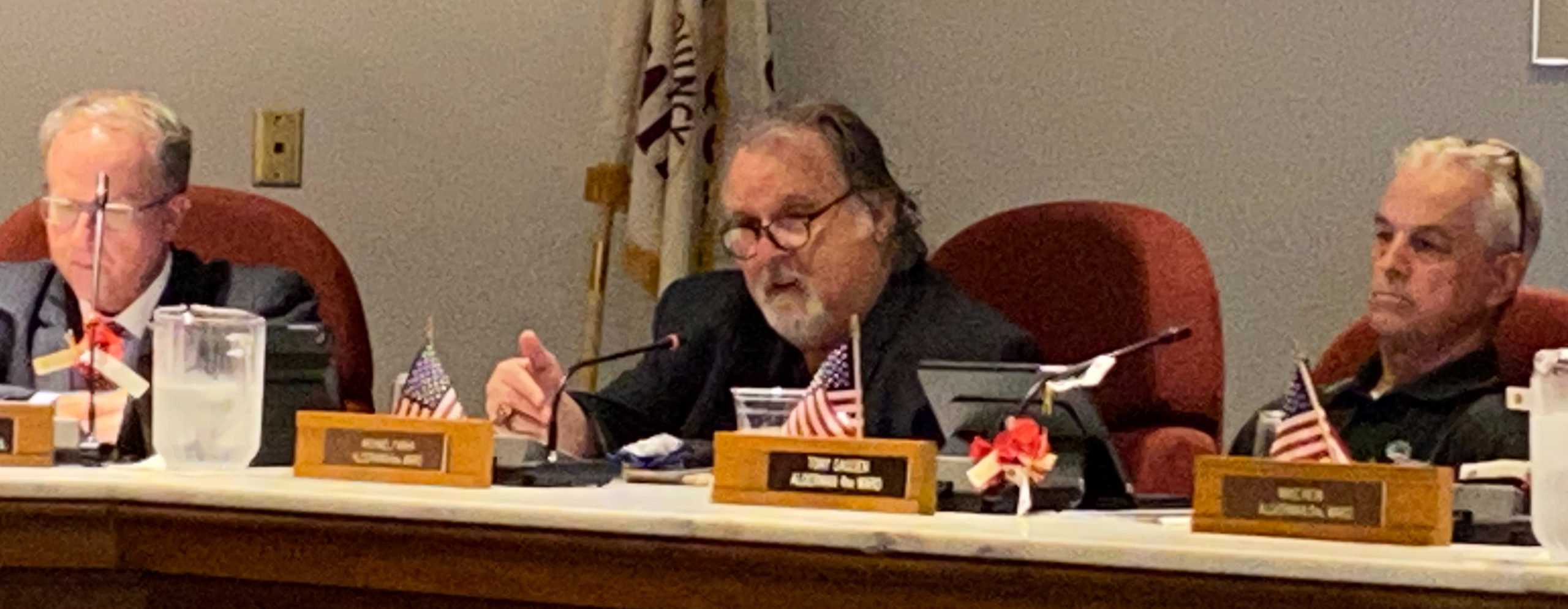Proposed residential rental registration program meets resistance from City Council

QUINCY — Michael Seaver, director of inspection and enforcement for the City of Quincy, brought Monday night to the Quincy City Council a proposed ordinance to establish a residential rental registration program.
It wasn’t met with open arms.
Mike Farha and Tony Sassen, 4th Ward alderman, both said they couldn’t support the proposal. Jeff Bergman, 2nd Ward alderman, and John Mast, 5th Ward alderman, liked some of the ideas but also thought the proposal needed plenty of work.
The reaction didn’t surprise Seaver.
“We’ve had discussions with previous administrations about some form of rental regulation, and we’ve had mixed reviews from the council. So we did expect some opposition,” he said. “We’ll take into account some of their discussions about changing some definitions and things like that, and then we’ll get back with the administration and see what direction they want to go.”
The proposed ordinance establishes a database of rental properties to aid the city in identifying substandard housing problems. It also would provide data for the development and focus of future housing-related grant programs.
The database would enhance communications with owners and landlords, who must provide email and emergency contact information. The city often only has contact with owners and landlords by mail. Any owner or landlord not residing within 50 miles of the city limits must designate someone who does and provide contact information.
Registering for the database will be done at no cost. Fees, fines, suspension or revocation of registration could be penalties for non-compliance.
Non-registered properties would not be allowed to be offered for rent. Landlords and tenants would be educated of the minimum standards of the city’s property maintenance code. An annual audit of a self-certification program would allow for limited inspections of up to five percent of the properties.
“It’s imperative that properties be registered,” Seaver told the City Council. “This ordinance essentially makes it illegal to offer a property for rent or to allow it to be rented or occupied if it hasn’t been registered.”
Many aldermen thought the ordinance did not legislate renters in the same way that it legislates owners and landlords.
“You create this database, a renter gets two, three months behind (on their rent), and all of a sudden, this is the biggest piece of crap they ever rented,” 1st Ward alderman Greg Fletcher said. “All they try to do is burn the landlord, and anybody who’s ever had a rental property knows that story. So if the landlords are going to be held accountable, what are we going to do about the renters who tear the place up, live like pigs, don’t want to pay their rent and then turn around and throw the landlord underneath the bus?”
Sassen thought the ordinance should also cover commercial buildings, not just residential buildings.
“This makes no sense to me whatsoever,” he said. “It doesn’t hold water. You’re not holding renters accountable, and 99 percent of the time, it’s the renters breaking the law.”
Bergman said most landlords are trying to do the right thing.
“There are some slumlords. Don’t get me wrong,” he said. “But it’s a two-way street when it comes to tenant responsibility inside some of these properties.”
Seaver said the property maintenance code has a few limited requirements that fall upon the occupant of a structure — primarily housekeeping, removal of trash, maintenance of the structure and keeping the structure pest free. Most other issues are the landlord’s responsibility.
Asked how to hold a tenant responsible, especially when the landlord isn’t creating an unsafe condition, Seaver said, “I would say the current requirements haven’t changed, although our exposure to them will be slightly affected with any audit.”
Farha noted that as he was driving to the Amtrak station near 30th and Wismann Lane that some of the city’s properties along Wismann Lane looked “like a jungle.”
“We don’t maintain it right,” he said. “Honestly, I wish I would have voted for the (former mayor John) Spring administration’s attempt to move the train station, because it’s sure not working out there because we can’t maintain it. If we can’t maintain it, let’s go to Amtrak and see if they’ll build something like they have in Pontiac that’s maintenance free.
“We violate our own standards, and our citizens lose confidence.”
Mast thanked Seaver for taking difficult questions from the aldermen.
“I know this is not a fun process for you to go through,” he said. “It’s not a fun process for any of us to go through. Minimum housing standards are very important. … This program has some merit, but it also has some problems. I look forward to seeing how you might readjust this and bring it back.”
Miss Clipping Out Stories to Save for Later?
Click the Purchase Story button below to order a print of this story. We will print it for you on matte photo paper to keep forever.

